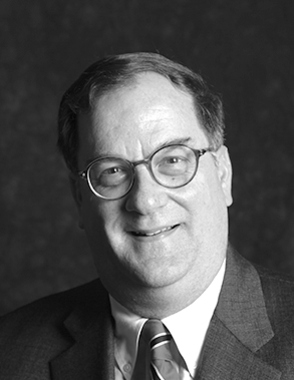Major news publications have reported that Williamson Evers, Hoover Institution research fellow and education policy expert, is on the shortlist for President-elect Donald Trump’s cabinet as secretary of education.
The New York Times, Politico and The Washington Post have all speculated that Evers, who currently serves on Trump’s education policy transition team, is a strong possible candidate for the position.
While many publications originally listed former 2016 presidential candidate and neurosurgeon Ben Carson as a frontrunner for the post, an advisor for Carson told Politico on Tuesday that he would not be in the running. The latest shortlists name Luke Messer, a Republican House representative, and Tony Zeiss, former president of a North Carolina community college, as candidates alongside Evers. President-elect Trump could wait several weeks before announcing his selection.
From 2007-09, Evers was the U.S. assistant secretary of education for policy under the Bush administration. He was a senior advisor in 2003 to Administrator L. Paul Bremer of the Coalition Provisional Authority in Iraq and in 2007 to Margaret Spellings, secretary of education during the Bush administration. In 2004, Evers served on the Santa Clara County Board of Education. Evers is a member of the Hoover Institution’s Koret Task Force on K-12 Education.
Evers has also served on multiple state commissions that set forth grade-by-grade subject standards for students.
A prominent critic of the Common Core Standards Initiative, a set of nationwide, grade-by-grade academic standards adopted by 42 states and the District of Columbia, Evers’ stance on education policy revolves around the concept of federalism.
“Competitive federalism encourages innovation, allows movement between jurisdictions that enhances liberty, and permits a better match between policies and voter preferences,” Evers said in a Nov. 2013 testimony before the Education Committee of the Ohio House of Representatives. “Common Core’s national uniformity runs counter to competitive federalism.”
For Evers, the Common Core’s centralized, bureaucratic nature undermines each local community’s ability to have a voice in its educational system. Evers frequently describes Common Core as a “cartel,” criticizing what he sees as the system’s ability to exist seemingly without criticism or local influence.
“The Common Core’s designers have taken the existing bureaucracy and increased its centralization and uniformity,” Evers said in a January 2015 Education Week article. “By creating the Common Core content standards behind closed doors, the authors increased the alienation of the public from schools as institutions worthy of loyalty. The general public had no voice in creating or adopting the Common Core.”
Over the course of his campaign, President-elect Trump has discussed eliminating the Department of Education entirely and delegating all education-oriented issues to the states.
In a February 2016 New Hampshire campaign speech, Trump also asserted he would “get rid of” the Common Core. However, it is impossible to “repeal” the Common Core, as the system is a set of standards adopted by states rather than a policy itself.
In September 2016, Trump proposed a $20 billion school voucher initiative to enable impoverished students to attend private, charter or magnet schools in lieu of underperforming public schools. Trump has also denounced the tenure system in American public schools and aims to replace the system with merit-based pay.
As of Tuesday night, Evers had not yet responded to a request for comment.
Contact Courtney Douglas at ccd4 ‘at’ stanford.edu.
